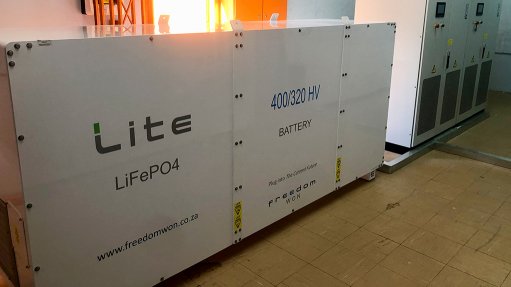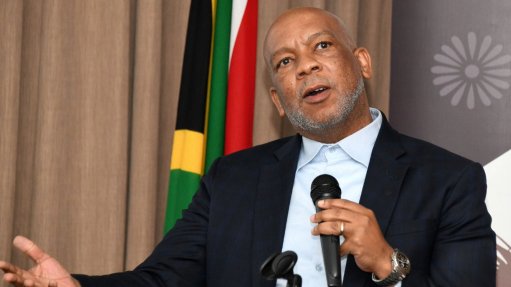It’s time up for the WTO and globalisation
Who would’ve thought, it figures . . . Well, isn’t this nice. And isn’t it ironic, don’t you think” – to borrow a few verses from Alanis Morissette’s third song, Ironic, which features on her iconic Jagged Little Pill album, released about 21 years ago. Yes, that long ago. It feels like yesterday, but it is not. Where does the time go? At this rate, time should be taxed.
The album was released on June 13, 1995, just more than six months after another iconic event. Well, it would be if you were involved in international trade at the time. On January 1, 1995, the World Trade Organisation (WTO), an intergovernmental organisation that regulates international trade, was established. Its establishment followed the signing up of 123 member countries on April 15, 1994. The WTO replaced the General Agreement on Tariffs and Trade – a Bretton Woods agreement – which had been in existence since January 1, 1948. (As at July 29, 2016, the WTO had 164 members.)
The WTO deals with the regulation of trade between its members by providing a framework for negotiating trade agreements and a dispute resolution mechanism aimed at enforcing participants’ adherence to WTO agreements, which are signed by representatives of member governments and ratified by their Parliaments. Most of the issues that the WTO focuses on derive from previous trade negotiations, especially the Uruguay Round, which lasted from 1986 to 1994.
But here is the thing: following the conclusion of the Uruguay Round, the Doha Development Round, or the Doha Development Agenda, was launched in November 2001, with explicit focus on developing countries. However, as things stand, the conclusion of this round is not in sight at all.
January 30 marked the entry into force of the WTO’s Council for Trade-Related Aspects of Intellectual Property Rights (TRIPS), the first amendment to the WTO’s rules since its establishment. The amendment is said to secure a legal pathway to ease access to affordable medicines in developing countries that mostly rely on imports. Then there is the WTO’s Trade Facilitation Agreement (TFA), which, following Nepal’s ratification on January 24, needs only two more members to ratify it to attain the two-thirds of the members required for it to enter into force. As a brief background, in December 2013, WTO members concluded negotiations on a TFA at the Bali Ministerial Conference as part of a wider ‘Bali Package’. Since then, WTO members have undertaken a legal review of the text. In line with the decision adopted at the Bali Ministerial Conference, members adopted, on November 27, 2014, a protocol of amendment to insert the new agreement into Annex 1A of the WTO Agreement. The TFA will enter into force once two-thirds of the members have completed their domestic ratification process.
So, to summarise, after 22 years, the WTO increased its membership by 41, or by 33.33%; the TRIPS rules were amended, the first amendment to the WTO rules; and the ratification of the TFA is ‘eagerly’ anticipated. But, after 16 years, the Doha Development Round remains unconcluded and it seems highly unlikely that it ever will be completed in its present form. Obviously, with pressure mounting, WTO members will be inclined to sign an agreement fairly quickly. The question, however, is: In what compromised form? And should a compromised agreement even be considered? Is no deal not better than a compromised deal?
But the Western world, which benefited under the Uruguay Round through the WTO’s developing member countries’ compromising, is now unwilling to reciprocate. This is placing the WTO’s sustainability – its future, its very survival – at risk. What is more worrying is that, recently, the Western countries have experienced political change or are currently undergoing political change. Essentially, this is a rise of nationalism, economic nationalism.
Associated with this is increased rhetoric about a return to economic protectionism. It is quite evident that globalisation has not benefited all and there is no prospect of this happening any time soon. If anything, globalisation has played a more-than-significant role in increasing inequality. This, simply, cannot be tolerated, allowed to fester or wished away.
But not everyone favours change. On February 20, the executive director of the International Trade Centre (ITC), a joint United Nations- (UN-) WTO agency, expressed the concern that the prospect of economic protectionism, raised by the new administration of US President Donald Trump, would increase global instability. The ITC’s concern is that, “if one country takes protectionist measures, other countries will [reciprocate] . . . and you create a snowball effect that will leave all the countries worse off than they are today”. The ITC cautions that countries need to be “careful” with respect to trade protectionism “because it will not protect the middle class”.
I will refrain from using this column to explore exactly what qualifies a person or persons for ‘membership’ of this class, as I consider this a fruitless endeavour. In the UK, this class is referred to as the Jams, the ‘just about managing families’. Although I consider this acronym to be derogatory, it is most expressive. This says it all, as does the fact that the Brexit referendum result (Britain’s exit from the European Union – EU – which is expected to be triggered on March 9) was a result of the vote of the middle class. Yes, the middle class! Could it be that the middle class no longer requires anyone’s ‘protection and is simply fed up with the status quo?
With Brexit in motion, the first round of the 2017 French Presidential election will be held on April 23. Should no candidate win a majority in the first round, a runoff round between the top two candidates will be held on May 7. Then, in Germany, federal elections will be held on September 24. In both instances, there is a distinct possibility for leaders to emerge who are less inclined towards a formal association with the EU, which could further fracture this bloc. In Europe – particularly in EU member countries – and in the US, as well as in other countries, the mood is changing to favour the national interest.
It is quite evident that the original flagbearer of globalisation, the WTO, might well become its pallbearer. Is it not ironic that, at this time in history, while the WTO is keenly awaiting the ratification of its TFA, the Western world is turning to economic protectionism?
“. . . isn’t it ironic, don’t you think; A little too ironic, and yeah I really do think.” Yes, Miss Morissette, so do we.
Comments
Press Office
Announcements
What's On
Subscribe to improve your user experience...
Option 1 (equivalent of R125 a month):
Receive a weekly copy of Creamer Media's Engineering News & Mining Weekly magazine
(print copy for those in South Africa and e-magazine for those outside of South Africa)
Receive daily email newsletters
Access to full search results
Access archive of magazine back copies
Access to Projects in Progress
Access to ONE Research Report of your choice in PDF format
Option 2 (equivalent of R375 a month):
All benefits from Option 1
PLUS
Access to Creamer Media's Research Channel Africa for ALL Research Reports, in PDF format, on various industrial and mining sectors
including Electricity; Water; Energy Transition; Hydrogen; Roads, Rail and Ports; Coal; Gold; Platinum; Battery Metals; etc.
Already a subscriber?
Forgotten your password?
Receive weekly copy of Creamer Media's Engineering News & Mining Weekly magazine (print copy for those in South Africa and e-magazine for those outside of South Africa)
➕
Recieve daily email newsletters
➕
Access to full search results
➕
Access archive of magazine back copies
➕
Access to Projects in Progress
➕
Access to ONE Research Report of your choice in PDF format
RESEARCH CHANNEL AFRICA
R4500 (equivalent of R375 a month)
SUBSCRIBEAll benefits from Option 1
➕
Access to Creamer Media's Research Channel Africa for ALL Research Reports on various industrial and mining sectors, in PDF format, including on:
Electricity
➕
Water
➕
Energy Transition
➕
Hydrogen
➕
Roads, Rail and Ports
➕
Coal
➕
Gold
➕
Platinum
➕
Battery Metals
➕
etc.
Receive all benefits from Option 1 or Option 2 delivered to numerous people at your company
➕
Multiple User names and Passwords for simultaneous log-ins
➕
Intranet integration access to all in your organisation


















